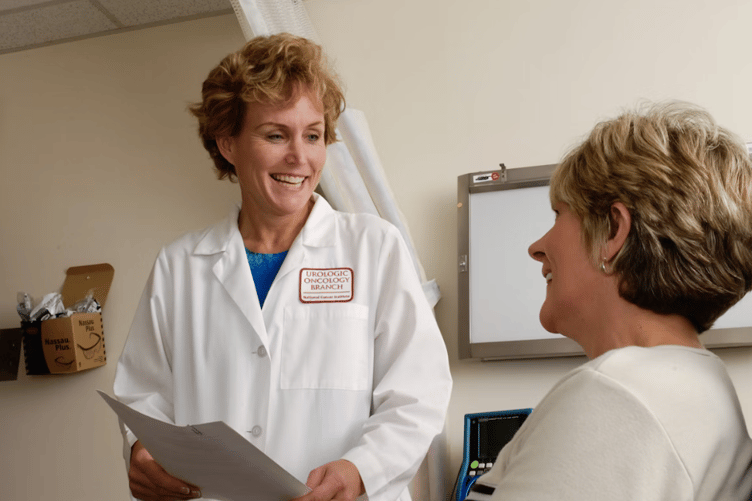WOMEN in Devon are being encouraged to attend their routine cervical screening checks when invited.
Each year, around 2,700 women are diagnosed with cervical cancer in England, with proportionally more people being diagnosed in the South West when compared to the national rate.
Just 68.8 per cent of women currently take up the offer of cervical cancer screening, well below the NHS England target of 80 per cent.
Screening helps prevent cervical cancer by detecting abnormal cells in the cervix before they develop into cancer.
Devon GP Dr Alex Degan, who is also Primary Care Medical Director at NHS Devon, said: ‘Cervical cancer is one of the most preventable cancers, so all women should book their screening appointment as soon as they receive their invitation.
‘Cervical screening lasts just a few minutes and saves lives.
‘Many women miss cervical screening because of fear or embarrassment, so if you have any concerns, you can discuss these with your GP or practice nurse before or at your appointment, and they can advise and support you during the process’.
Cervical cancer is one of the most preventable cancers, yet two women die every day from the disease. It is most common in women aged between 30 and 35, but it can happen at any age.
Nearly all cervical cancers are caused by high-risk human papillomavirus (HPV), a common virus that’s spread through skin contact (usually when having sex).
More accurate human papillomavirus (HPV) testing will enable millions of women and people with a cervix in England to benefit from more personalised cervical screening from this month.
From July, younger women (aged 25 to 49) who test negative for HPV, meaning they are at very low risk of cervical cancer over the next ten years, will safely be invited at five-year intervals rather than three, in line with major clinical evidence.
Those whose sample indicates the presence of HPV or who have a recent history of HPV, which causes nearly all cervical cancers, will continue to be invited to more frequent screenings to check HPV has cleared and if not, if any cell changes have developed.
The HPV vaccine protects against most types of HPV, preventing 9 out of 10 cases of cervical cancer. It’s quick, safe, and the best protection you can get against future cancer risk.
The NHS offers the HPV vaccine to boys and girls from the age of 12-13. Girls under 25 and boys born after 1 September 2006 who missed their HPV vaccine at school, can also catch up at their GP.
Dr Degan added: “By getting the HPV vaccination and attending screenings when invited, you’re giving yourself the best possible protection against cervical cancer.
“Even if you’ve had a HPV vaccination it’s important that you attend your cervical screening appointment when invited because the HPV vaccine doesn’t protect against all strains of HPV.”
NHS cervical screening helps prevent cervical cancer by using a highly effective test to check for HPV, which is found in over 99 per cent of all cervical cancers and which may cause abnormal cells to develop in the cervix.
These abnormal cells can, over time, turn into cancer if left untreated.
More details on NHS cervical screening and how to book an appointment are available at www.nhs.uk/conditions/cervical-screening.





Comments
This article has no comments yet. Be the first to leave a comment.